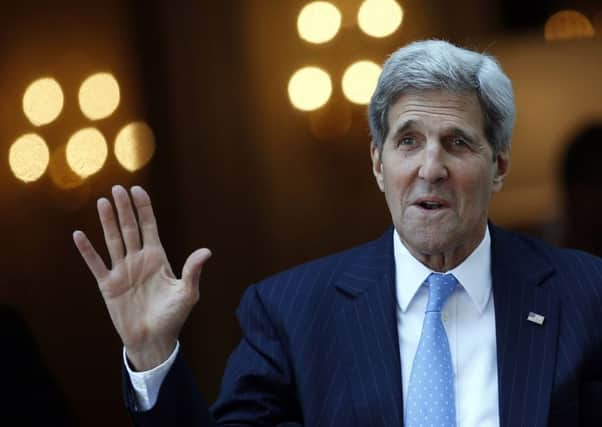Historic Iran nuclear deal set to be agreed


Two diplomats said a provisional agreement might be reached during the course of Sunday night. But they cautioned that final details were still being worked out and a formal agreement still awaited a review from the capitals of the seven nations at the talks.
“We are working hard, but a deal tonight is simply logistically impossible,” the Iranian official said yesterday, noting that the agreement will run to roughly 100 pages.
Advertisement
Hide AdAdvertisement
Hide AdA senior US official declined to speculate as to the timing of any agreement or announcement and noted that “major issues remain to be resolved in these talks”.
Movement towards a deal has been marked by years of tough negotiations. The current round in Vienna has run for more than two weeks and blown through three deadlines.
US secretary of state John Kerry, who on Thursday had threatened to walk away from the negotiations, said yesterday that “a few tough things” remained in the way but added: “We’re getting to some real decisions.”
Mr Kerry twice said he was “hopeful” after a “very good meeting” with Iranian foreign minister Mohammad Javad Zarif.
French foreign minister Laurent Fabius also was cautiously optimistic, saying: “I hope that we are finally entering the last phase of this negotiation.”
The pact is meant to impose long-term, verifiable limits on nuclear programmes that Tehran could modify to produce weapons. Iran, in return, would get tens of billions of dollars in sanctions relief.
The current round of nuclear talks was yesterday in its 16th day and has been extended three times since the first deadline of 31 March was missed. The mood among negotiators turned more sombre each time a new target date was set.
As the weekend approached, Mr Kerry declared the talks couldn’t go on indefinitely and warned that the US could walk away from the negotiations.
Advertisement
Hide AdAdvertisement
Hide AdBut in another sign that a deal could soon be sealed, Russian news agencies reported that the country’s foreign minister, Sergey Lavrov, planned to arrive in Vienna on Sunday evening.
Diplomats said most of the nuts and bolts of implementing the deal had been agreed. But over the past week, issues that were previously on the back-burner have led to new disputes. Among them was Iran’s demand for a lifting of a UN arms embargo and its insistence that any UN Security Council resolution approving the deal be written in a way that stops describing its nuclear activities as illegal.